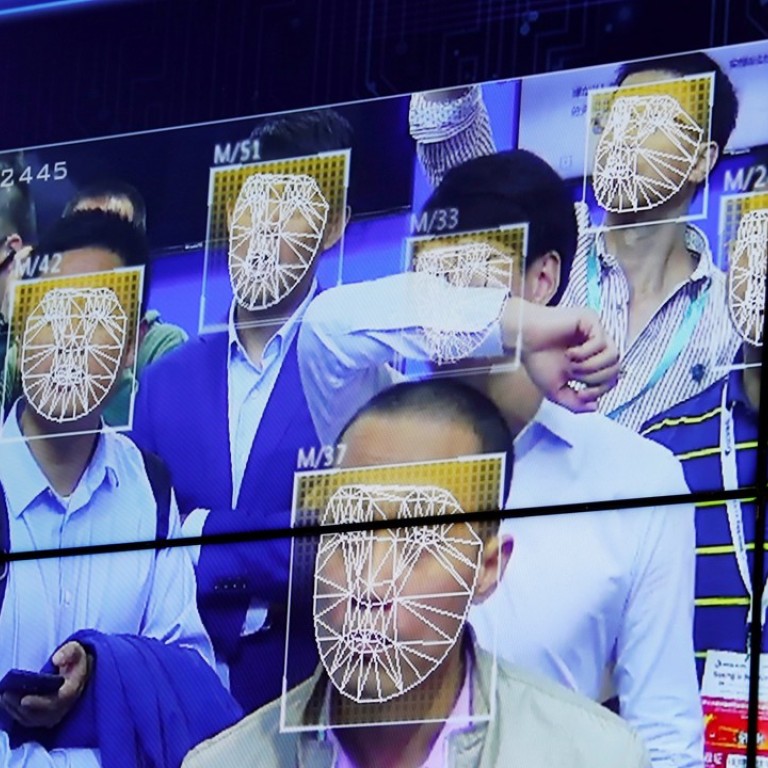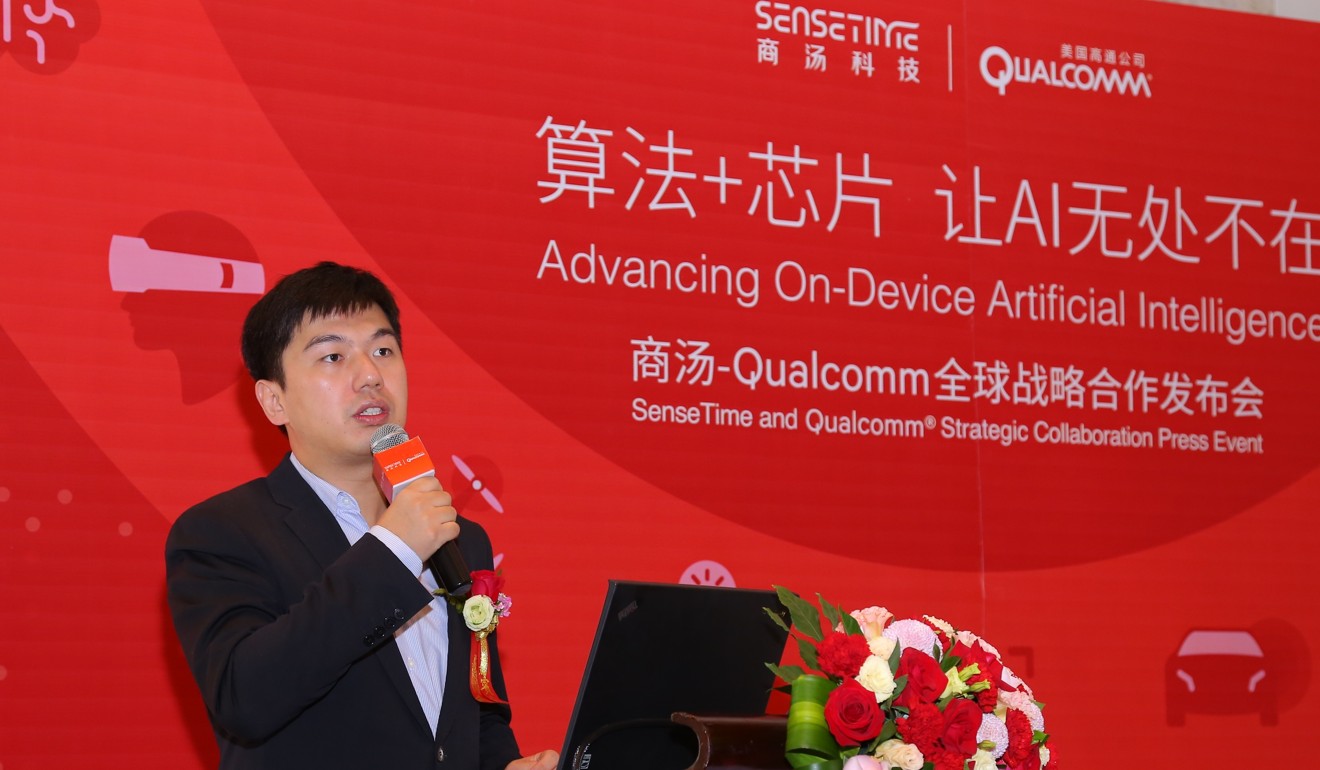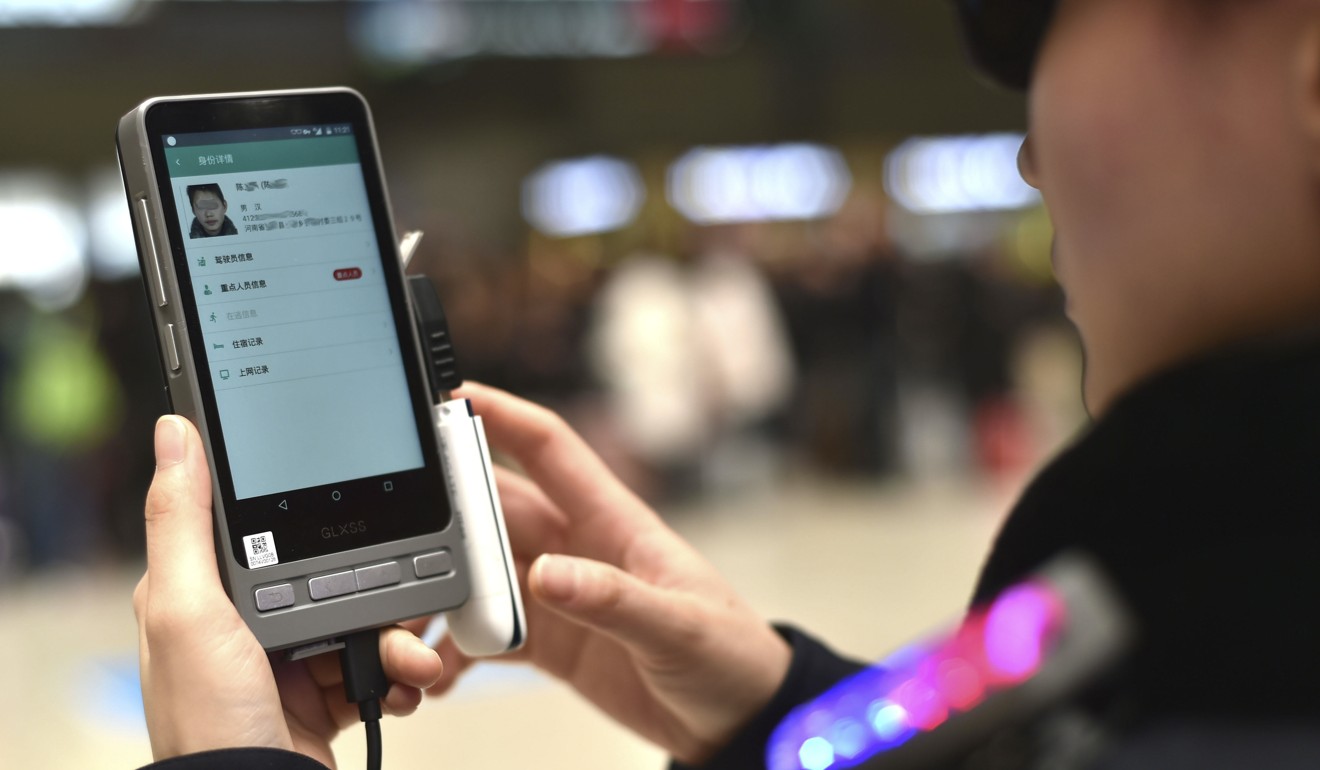
Meet five Chinese start-ups pushing facial recognition technology into the mainstream
Facial recognition systems are now being used extensively across China in areas such as public security, financial services, transport and retail
China’s goal of becoming a global leader in artificial intelligence (AI) is nowhere more manifested than in how facial recognition technology has become a part of daily life in the world’s second-largest economy.
Facial recognition systems, which are biometric computer applications that automatically identify an individual from a database of digital images, are now being used extensively in areas such as public security, financial services, transport and retail across the country.
The global facial recognition market is forecast to be worth US$6.5 billion by 2021, up from US$2.3 billion in 2016, according to the latest estimates from research company Technavio.
A number of Chinese companies have already staked a claim into this growing market, where their products and services are used by organisations in both the public and commercial sectors.
Here are five start-ups that are spurring further innovations in facial recognition systems:
1. DeepGlint
Founders: He Bofei, Zhao Yong
Latest funding status: Series A
Investors include Sequoia Capital, ZhenFund, Microsoft Accelerator Beijing and Ceyuan Ventures.
Founded in 2013, DeepGlint is an AI company based in Beijing that specialises in the field of computer vision, which is focused on the automatic extraction, analysis and understanding of useful information from a single image or sequence of images.
Its proprietary DeepGlint technology is used in the detection, tracking and recognition of people and vehicles. Clients include banks, museums and public security agencies. The company is exploring the application of its technology in driverless vehicles as well as robotic and smart medical systems.
2. Megvii
Founders: Yin Qi, Tang Wenbin, and Yang Mu
Latest funding status: Series C
Investors include Sinovation Ventures, Ant Financial Services Group, Foxconn Technology Group, the Russia-China Investment Fund and the China State-Owned Assets Venture Investment Fund.
Beijing-based Megvii, which is also known as Face++, was established in 2011 by three Tsinghua University graduates. Its Face++ facial recognition software platform is recognised as the world’s largest, which is used by more than 300,000 developers in 150 countries.
That technology platform is behind many popular applications implemented in China, including those from payments giant Alipay, mobile photo editing app provider Meitu, ride-hailing service Didi Chuxing, computer maker Lenovo Group, smartphone supplier Xiaomi, China Merchants Bank and China Citic Bank.
Megvii’s technology is also used by the Ministry of Public Security, which oversees a facial scan database of more than 1.3 billion people in China. Its an innovation that has helped China’s police force arrest more than 4,000 people since 2016.

3. SenseTime Group
Founders: Xu Li, Sean Tang Xiaoou
Latest funding status: Series C
Investors include CDH Investments, Sailing Capital, Qualcomm, Dalian Wanda Group, IDG Capital Partners, StarVC, China Merchants Securities and Alibaba Group Holding.
Based in the Hong Kong Science Park, SenseTime was founded in 2014 by a group of academics involved in artificial intelligence at the Chinese University of Hong Kong. The company became the city’s first hi-tech unicorn – a start-up valued at US$1 billion or more – after completing its Series B funding round in July last year. It is currently valued at more than US$2 billion after Alibaba, which owns the South China Morning Post, made a US$227 million investment in November last year.
SenseTime has more than 400 customers and strategic partners, including China Mobile, HNA Group, Wanda Group, Meitu, graphics processor maker Nvidia, China UnionPay, Sina Weibo, China Merchants Bank, and mainland smartphone giants Huawei Technologies, Oppo, Vivo and Xiaomi.
4. Yitu Technology
Founders: Leo Zhu Long, Lin Chenxi
Latest funding status: Series C
Investors include Yunfeng Capital, ZhenFund, Hillhouse Capital Group, Sequoia Capital and Banyan Capital.
Founded in 2012, Shanghai-based Yitu has gained wide recognition for its Dragonfly Eye System, a facial scan platform that can identify a person from a database of at least two billion people in a matter of seconds.
The company opened last month its first international office in Singapore, where it plans to hire more than 50 researchers. It recently formed a strategic cooperation with local governments and various organisations in Britain in the fields of public security, finance and health care.

5. Zoloz
Founder: Toby Rush
Latest funding status: acquired by Ant Financial in 2016
Alibaba Group affiliate Ant Financial paid an estimated US$100 million to take over EyeVerify months after the Kansas City, Missouri-based company landed a deal to integrate its Eyeprint ID into Alipay’s payments authentication system. That ID technology turns a selfie of a user’s eye into a biometric security key.
In August last year, EyeVerify changed its name to Zoloz to reflect the company’s mobile-centric mission to fuse biometrics with authentication technology into a comprehensive platform, enabling people to seamlessly connect across devices and activities.
Zoloz, now a subsidiary of Ant Financial, claims to have more than 200 million users worldwide. Last year, its “Smile to Pay” application was launched at an outlet of fast-food chain KFC in Hangzhou, where customers have their faces scanned to authenticate payments.

